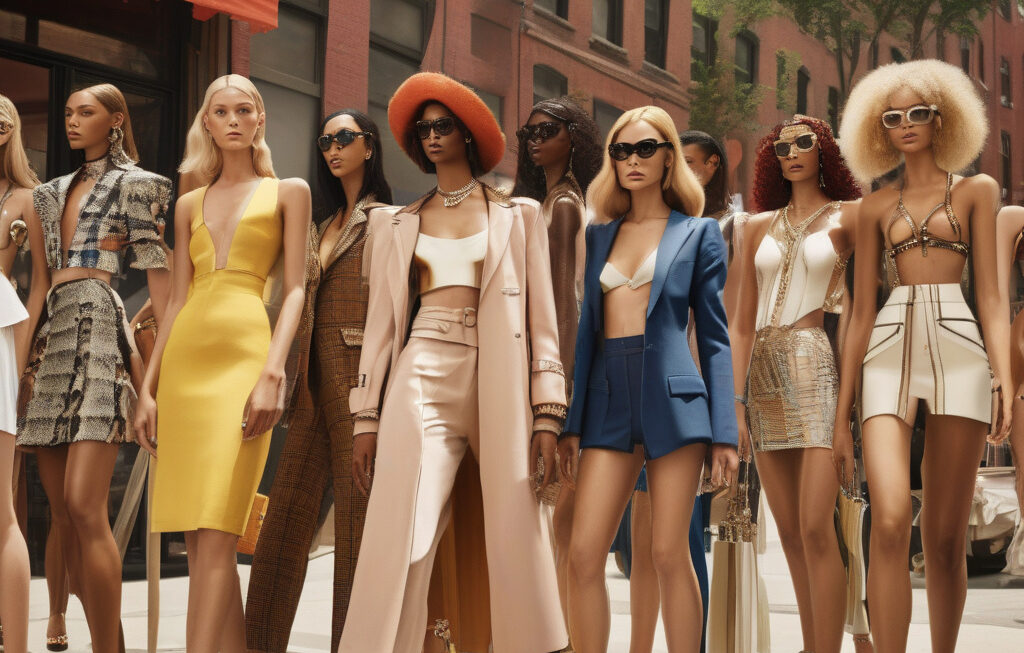Tech Mode: The Latest AI Fashion Controversy
Artificial Intelligence (AI) has revolutionized numerous industries, and the fashion world is no exception. With AI algorithms being increasingly utilized to create designs, predict trends, and personalize shopping experiences, the intersection of technology and fashion has opened up a myriad of possibilities. However, the recent controversy surrounding J.Crew sheds light on the potential pitfalls of relying too heavily on AI in the creative process.
J.Crew, a renowned American retailer known for its timeless apparel and accessories, recently found itself embroiled in AI drama. The brand faced backlash after it was revealed that it had been using generative AI tools to assist in designing its clothing lines. While the use of AI in fashion is not inherently negative, the controversy stemmed from allegations that J.Crew’s AI-generated designs bore striking resemblances to those created by independent artists.
This incident has sparked a broader conversation within the fashion industry about the ethical implications of AI technology. As brands increasingly turn to AI to streamline design processes and cater to consumer preferences, questions about intellectual property rights, creative ownership, and the human touch in fashion have come to the forefront. The MIT study highlights the need for fashion businesses to reassess how they integrate generative AI tools into their operations to avoid similar controversies in the future.
While AI offers undeniable benefits in terms of efficiency, cost-effectiveness, and data analysis, its use in creative fields like fashion raises complex issues. One of the key concerns is the potential lack of originality in AI-generated designs. As algorithms analyze vast amounts of data to predict trends and create new styles, there is a risk that the resulting designs may lack the unique perspective and creative flair that human designers bring to the table.
Moreover, the question of attribution and credit becomes murkier in a landscape where AI plays a significant role in the design process. Who owns the rights to AI-generated designs? Should independent artists be compensated if their work inadvertently influences AI algorithms? These are thorny issues that the fashion industry must grapple with as AI technology continues to advance.
To navigate the AI fashion controversy successfully, brands must strike a balance between innovation and ethical considerations. While AI can undoubtedly enhance design processes and drive business growth, it is essential for companies to prioritize transparency, accountability, and respect for creative integrity. Collaborations between AI systems and human designers, rather than outright replacement, may offer a more sustainable and harmonious approach to leveraging technology in fashion.
Ultimately, the J.Crew AI fashion controversy serves as a cautionary tale for the industry at large. As technology becomes increasingly intertwined with every aspect of the fashion business, it is crucial for brands to approach AI integration thoughtfully and ethically. By fostering a culture of creativity, authenticity, and responsible innovation, fashion businesses can harness the power of AI while upholding the values that define the industry.
In conclusion, the intersection of AI and fashion holds immense potential for innovation and growth, but it also presents complex challenges that demand careful consideration. The MIT study’s findings underscore the importance of reevaluating current practices and embracing a holistic approach to AI integration in the fashion industry. By navigating the AI fashion controversy with integrity and foresight, brands can pave the way for a more sustainable and ethically sound future in fashion.
J.Crew, AI, Fashion, MIT study, Technology










